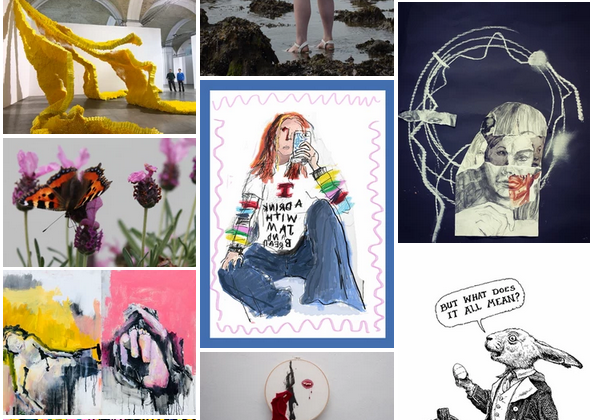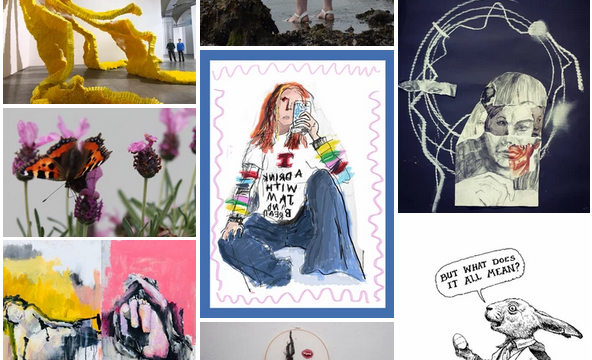There’s a day for pretty much everything now. World Suicide Prevention Day, Non-Smoking Day, National Bring Your Dog to Work Day (26th June in 2020 by the way…not sure how that will work in lockdown). So I think it’s fair to say that Mental Health Awareness Week has a fair bit of competition. From both a personal and professional perspective though, in recent years it’s been a highly relevant and important week to me, so I wanted to share some thoughts and reflections on this.
According to the Mental Health Foundation’s website, the purpose of the UK’s national Mental Health Awareness Week is, “to raise awareness of mental health and mental health problems and inspire action to promote the message of good mental health for all.” The 2020 campaign was of particularly importance to many given the significant impact of the COVID-19 situation on the UK’s mental health.
As my work over the last number of years has mainly involved researching suicide and mental health, and most recently mental health and well-being in the workplace, Mental Health Awareness Week has tended to be a fairly busy time. The 2019 week involved a flurry of activity; indeed there were so many places to be, events to attend and present at, as a research team we found ourselves fanning out across Belfast and Northern Ireland, following a ‘divide and conquer’-type approach. It’s a distinctly pre-pandemic memory.
I was aware that the Northern Ireland Mental Health Arts Festival (NIMHAF) was running throughout Mental Health Awareness Week in 2019, but was generally too busy with my own commitments to fully engage with it. The programme of events looked really enticing, and right up my street, but sometimes, as I have on occasion learnt the hard way, you have to check yourself before you wreck yourself. Subsequently however, my Queen’s University colleague Dr Anne Campbell invited me to come along to a meeting of the NIMHAF Organising Committee. A few months later I found myself agreeing to be the Chair of the Festival’s Board, having never actually been a Board member of anything else before. It felt like kind of a big deal, and to say I felt out of my depth and still very much do, is a complete understatement. But anyway. It’s happening.
I was diagnosed with bipolar disorder when I was 19 years-old. Now at the age of 40, I’m pleased to be able to look back and say that I have mostly been well since given my diagnosis. On the contrary, there have obviously been times when I haven’t been at all well. I’ve had at least three significant manic or hypomanic episodes, which have been incredibly difficult times for those around me, more so than for myself. And I definitely know all too well what it is to be depressed. I try to regard being a mental health researcher with lived experience of mental ill health to be a privilege. A have an insight into what it’s like to be a ‘service user’ as well as a researcher.
We really tried with NIMHAF this year to ensure that all participating artists had lived experience of mental health challenges. We take a strong ‘Nothing About Us Without Us’ approach. Due to lockdown restrictions, the seventh NIMHAF had to move at short notice to an online format, adopting a variety of platforms (e.g. Instagram takeovers, Facebook, Zoom) in order to best facilitate the delivery of each event. Much of the programme continues to be available on the Festival’s website: https://www.nimhaf.org/what-s-on

Clockwise from top-right: Title?-Brendan Jamison; One Thing-Neil R. Finlay; On the Orbit of Identity-Honorata Art; A Crisis of Leporid Identity-Ryan Mur; A Song in the Blood-Siobhán Barbour; Dual Realities 2020-Ciaran Magill; To Flourish and to Flutter-Nuala Ei; (centre) T, A Drink with Jam & Bread-Rachel B.
Copyright is that of the artists
Some stand-out highlights of the Festival included-
- the open call for poetry, on the highly relevant theme of ‘Isolation’ with entries being read by well-known, Drag Queen sensation, Electra;
- the sold out, daily Big Sing for Wellness facilitated by musician extraordinaire, Katie Richardson;
- comedian Paul Currie’s ‘Turbo Hallion’ Instagram takeover;
- and the film premiere of ‘I Take a Journey‘ by Brain Injury Matters.
It was a really diverse programme of events, very well supported and feedback received was overwhelmingly positive. Special recognition must go to Dawn Richardson, the newly appointed Artistic Director of the Festival, who was able to pull together an alternative, successful, COVID-friendly programme, with only a few weeks’ notice. The Mental Health Foundation funded this year’s Festival, and without their contribution, NIMHAF 2020 would simply not have happened. Plans are now afoot for 2021’s Festival, and we will be releasing a publication to precede the May NIMHAF, which we are all really excited about.
From a personal, honest perspective, the major imposter syndrome still remains around Chairing the NIMHAF Board. It is only through the work of the incredibly dedicated members of the Organising Committee, and the endless guidance and support of the previous Chair, Professor Gavin Davidson, that the Festival continues to happen. It is an honour to be involved with these hard-working, passionate individuals. I feel so lucky on many levels to be working in a field that I care about and can relate to very deeply, and relieved that personal stories of lived experience of mental ill health are now less likely to be seen as shocking or taboo. I don’t delude myself into thinking that the knowledge that I have bipolar disorder will not alter someone’s perspective of me; but am comfortable with who I am and with being open about my mental health journey. I hope that in some tiny way it might contribute to the destigmatisation of mental health challenges more broadly.
